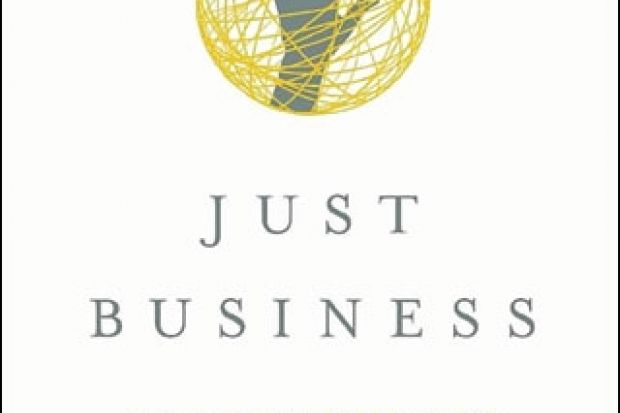Markets work optimally, John Gerard Ruggie states in Just Business, “only if they are embedded within broader social and legal norms, rules, and institutional practices”.
With the tension points between business and human rights already being amply acknowledged in the literature, it is now timely to decide which way to address these tensions. In Just Business, Ruggie reflects on this debate, in many ways importantly shaped by the author himself in his former position as the Special Representative of the UN Secretary General and as the mastermind of the now UN-endorsed Guiding Principles on Business and Human Rights.
From his privileged position “in the eye of the storm”, Ruggie announces two aims for his book. First, to tell the story of how he got from the 2005 UN mandate to the 2011 Guiding Principles. His second stated aim is to tell the story in such a way “that broader lessons can be learned from it”, with business and human rights being, according to him, “a microcosm of a larger crisis in global governance”.
Ruggie performs an exercise in persuasion. The genius of storytelling as an act of persuasion is, some scholars say, that it buries argument in the facts
This book is indeed an exercise in true storytelling in more ways than its author might have anticipated. The unsuspecting reader may see the book as a must-read because her work or study requires a well-thought-out account of the decision-making intricacies of the UN bodies, the spelling-out of the jargon or an explanation of the complex consultation processes. She would not be disappointed. Just Business rewards one with all the details of the birthing process of the Guiding Principles. At the same time, this volume offers much more. One can identify the essential elements of an insightful storytelling endeavour: the character, the conflict, the (episodic) resolution, as well as the structuring of events in ways that go beyond mere chronology.
Some may identify Ruggie as the protagonist of the story. Indeed, Ruggie himself, as well as a great part of the academic community, may allow for that perception. However, the main character in the story is in fact Ruggie’s “principled pragmatism”, a concept that privileges “what [Ruggie thinks] works best in creating change” rather than a “fully ‘rights-based’ ” approach, which is generally more consistent with the human rights discourse.
As for the conflict element of his storytelling, Ruggie opts for overcoming the mandatory-versus-voluntary debate by focusing on process and tools, albeit paying little attention to the need for rethinking the social paradigm that currently governs the relationship between business and society.
The resolution of Ruggie’s story proposes the Guiding Principles platform – and how solid that platform is, only time will tell – for the development of a “smart mix” of policy measures that may generate “cumulative change” and achieve “large-scale success”.
Ruggie’s writing is, as was his work as UN Special Representative, full of honesty and engagement in the story he is telling. He tries to make the reader understand, like and approve of his approach. He performs an exercise in persuasion. The genius of storytelling as an act of persuasion is, some scholars say, that it buries argument in the facts. This, however, is part of both the delights and the dangers of storytelling.
The social expectation for fundamental change in the paradigm of interaction between business and human rights may not have been fully or even adequately challenged through the UN’s Ruggie-led process. Just Business recounts, however, a few of the essential episodes of a bigger story that is yet to unfold. This is a story to which Ruggie has contributed substantially, and this is why his book is indeed a must-read, if only for the reader to be able to offer a different account. Make it your own story!
Just Business: Multinational Corporations and Human Rights
By John Gerard Ruggie
W. W. Norton, 160pp, £14.99
ISBN 9780393062885
Published 30 April 2013
Register to continue
Why register?
- Registration is free and only takes a moment
- Once registered, you can read 3 articles a month
- Sign up for our newsletter
Subscribe
Or subscribe for unlimited access to:
- Unlimited access to news, views, insights & reviews
- Digital editions
- Digital access to THE’s university and college rankings analysis
Already registered or a current subscriber? Login




